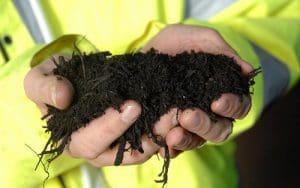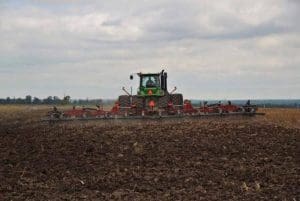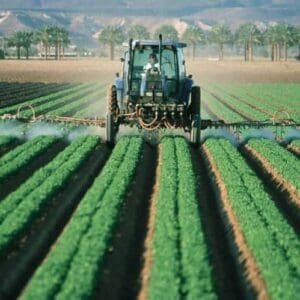Farms, like any other business, are always looking out for ways to improve their returns. It’s not rocket science, if you can get more money out than the money you put in, then it’s something that businesses consider.
This is what has fuelled the rise in the use of pesticides and fertiliser. These additives return more money than they cost to supply. In these examples, pesticides lower the number of crops that are damaged by pests and thus increase the amount of saleable product. Fertiliser, on the other hand, provides nutrients to the plant so that it can grow faster and bigger, thus producing a more expensive product. Each of these additives is calculated to provide a return on investment greater than the cost of application and thus, profit.
However, in today’s day and age, consumers are beginning to resist chemical-based additives in their foods. They are actively buying foods that are grown and marketed as “organic”, “pesticide free” and “natural”.
This is why some farms in the UK are turning their attention towards more environmentally friendly ways of farming. Here’s how:
No More Pesticides
For as long as farms mass produce crops on a large scale, there will be a need to control pests. For a long time, pesticides have been used in agriculture, but only recently are we beginning to understand and study the environmental and biological implications of their use. Many pesticides affect “non-target” species, which are often helpful to the plant’s development, such as bee pollination. In addition, there are growing concerns as to the effects of pesticide residue left on produce consumed by the public. In March 2017, UN food and pollution experts stated that pesticides cause “catastrophic impacts on the environment and human health”.
There was also, until recently, not an abundance of information available to agriculturalists. Any information that was available, was supplied by businesses with a vested interest in the pesticide or seed industry. Resulting in the only information available supporting the use of pesticide. However, a recent study published in a peer-reviewed journal Natural Plants found that 77% of farms would be unaffected if they stopped using pesticides or cut the amount of pesticide they used. The study even found that 40% of these farms could increase produce.
No More Fertiliser

Fertiliser is used as a soil additive used to “restock” the nutrients available for plants to grow. Whilst the nutrients are typically available in the soil, to begin with, with years of mono-crop farming the soil begins to be deficient in what the plant needs.
This is where fertiliser used to come in. Fertiliser is a quick supply drop of nutrient that is readily accessible by the plant. However, since it’s so quick and readily available, it’s also flimsy and unreliable. A heavy rain or a shifting water table can quickly remove these nutrients from the ground, as it’s not “locked in” to the soil. This can cause adverse effects on the surrounding environment. Take a look at our recent blog “how farms can reduce agricultural pollution” for more information on how fertiliser can ruin the local environment.
In a recent study by WRAP (The Waste and Resources Action Programme) which studied the effects of using alternatives to fertilisers, found compost and digestate to be a reasonable alternative. The 9-year study found that compost increases the soil organic matter by over 20% and food-based digestate applications increase soil Nitrogen efficiency to over 70%. The study valued the additional nutrient supply at £55-£160 per hectare. You can read more about this in our recent article “Fertiliser vs Compost”.
No-Till Agriculture

Tilling is understood as a fundamental part of agriculture. It’s the act of breaking the soil to aerate it and to allow the crop’s seeds to get under the soil. It’s widely regarded as a staple of farming.
However, carbon dioxide is locked into the soil through everyday natural processes by microbes and the degradation of natural soil content. Carbon dioxide is present in all soil and plant life relies on it for nutrients and only a small amount is lost to the atmosphere through disturbing the soil… until farming began disturbing millions of hectares of soil across the globe, causing a spike in released carbon dioxide.
How do these practices affect harvest returns? Some are obvious, compost is cheaper than fertiliser and returns greater crops. No-till agriculture is a cheaper process, since tilling costs time and resources to perform. In addition, a greener and the more environmentally friendly farm are more marketable in today’s climate. Finally, in many parts of the world farms are given tax incentives or subsidies based on their environmental impact, this method of reducing the environmental impact is a solid method of improving tax or subsidies.
